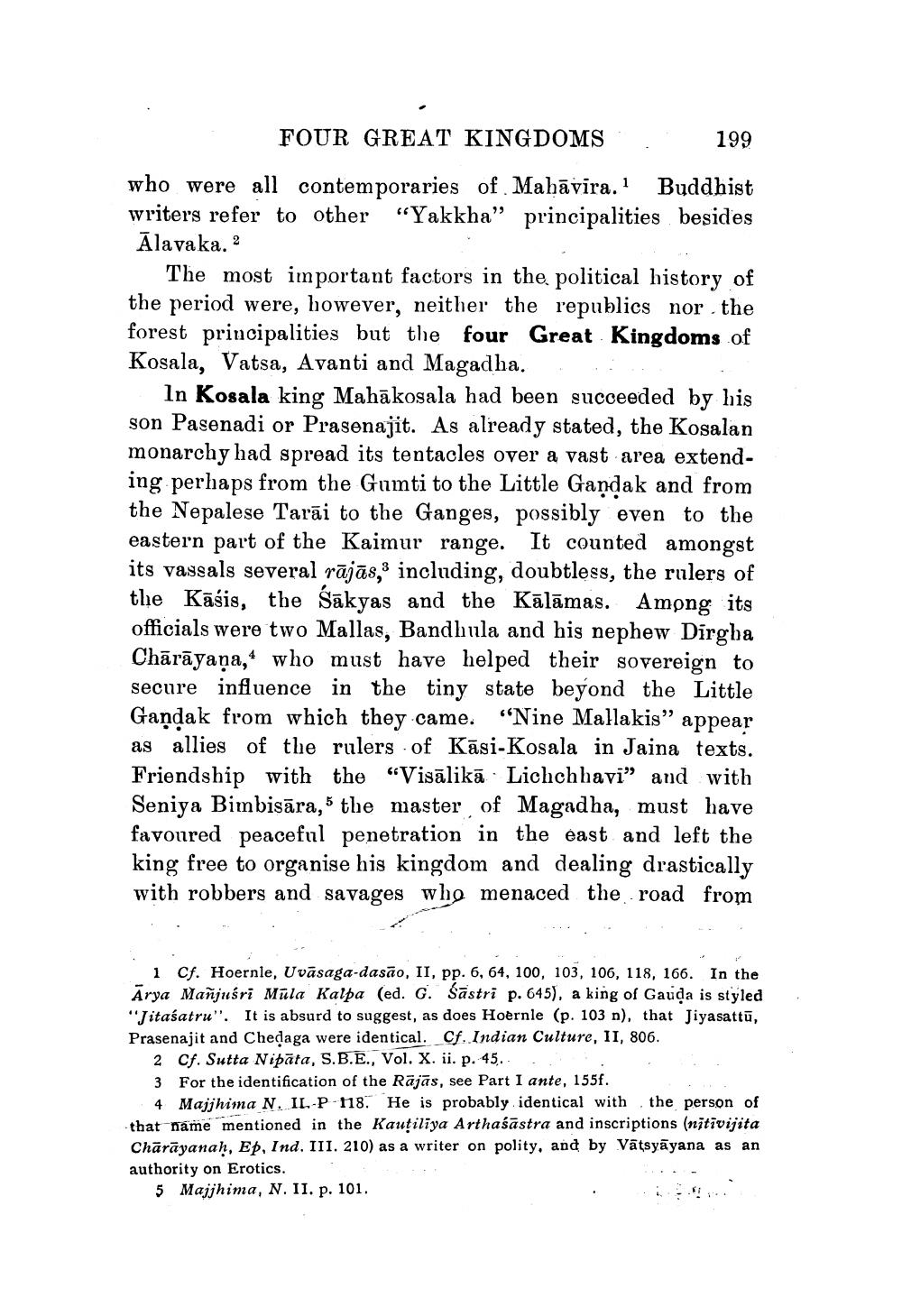________________
FOUR GREAT KINGDOMS 199 who were all contemporaries of Mahāvīra.! Buddhist writers refer to other “Yakkha" principalities besides
Ālavaka. 2
The most important factors in the political history of the period were, however, neither the republics nor the forest principalities but the four Great Kingdoms of Kosala, Vatsa, Avanti and Magadha..
In Kosala king Mahākosala had been succeeded by his son Pasenadi or Prasenajit. As already stated, the Kosalan monarchy had spread its tentacles over a vast area extending perhaps from the Gumti to the Little Gandak and from the Nepalese Tarāi to the Ganges, possibly even to the eastern part of the Kaimur range. It counted amongst its vassals several rājās, including, doubtless, the rulers of the Kāśis, the sākyas and the Kālāmas. Among its officials were two Mallas, Bandhula and his nephew Dirgha Chārāyaṇa,+ who must have helped their sovereign to secure influence in the tiny state beyond the Little Gandak from which they came. "Nine Mallakis" appear as allies of the rulers of Kāsi-Kosala in Jaina texts. Friendship with the “Visālikā Lichchhavi” and with Seniya Bimbisāra, 5 the master of Magadha, must have favoured peaceful penetration in the east and left the king free to organise his kingdom and dealing drastically with robbers and savages who menaced the road from
1 Cf. Hoernle, Uvāsaga-dasão, II, pp. 6, 64, 100, 103, 106, 118, 166. In the Arya Manjusri Mula Kalpa (ed. G. Šāstri p. 645), a king of Gauda is styled "Jitaśatru". It is absurd to suggest, as does Hoernle (p. 103 n), that Jiyasattū, Prasenajit and Chedaga were identical. Cf. Indian Culture, II, 806.
2 Cf. Sutta Nipāta, S.B.E., Vol. X. ii. p. 45... 3 For the identification of the Rajās, see Part I ante, 155f.
4 Majjhima N. IL-P-118. He is probably identical with the person of that name mentioned in the Kauțiliya Arthaśāstra and inscriptions (nitivijita Chārāyanah, Ep. Ind. III. 210) as a writer on polity, and by Vātsyāyana as an authority on Erotics.
5 Majjhima, N. II. p. 101.




